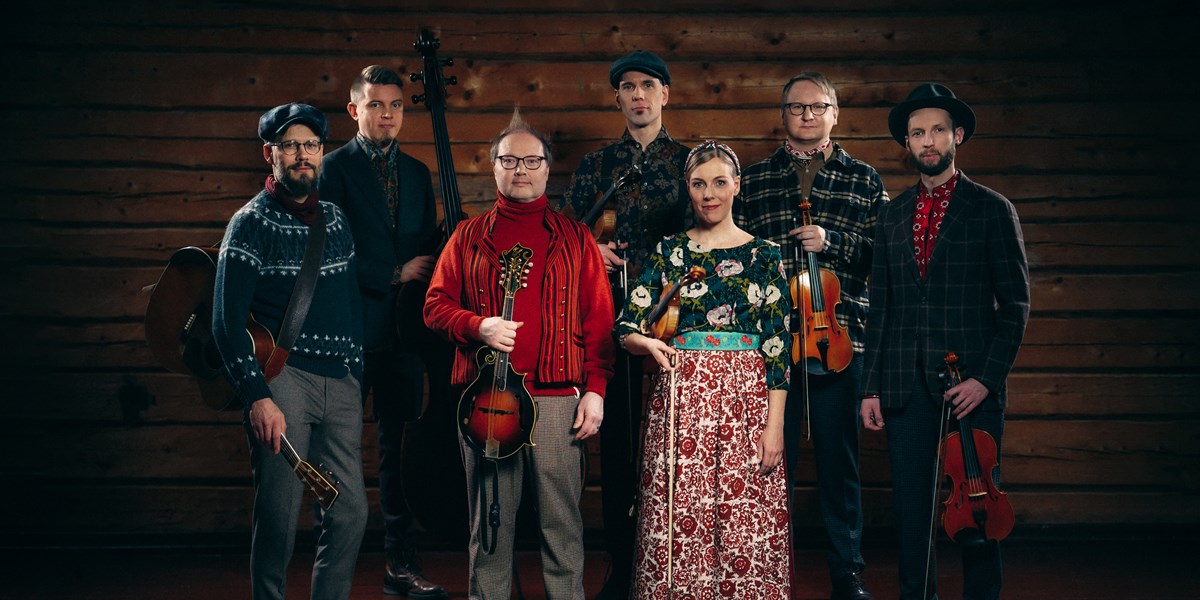Friday, May 27, 2022
“Ask where the music is taking you” | Frigg
By Tony Gillam
Tony Gillam spoke with Frigg’s Esko Järvelä and Petri Prauda before the septet’s belated 20th-anniversary tour and finds the irrepressible Nordgrass veterans in buoyant mood

©Antti Kokkola

Register now to continue reading

Thanks for visiting the Songlines website, your guide to an extraordinary world of music and culture. Sign up for a free account now to enjoy:
- Free access to 2 subscriber-only articles and album reviews every month
- Unlimited access to our news and awards pages
- Our regular email newsletters

